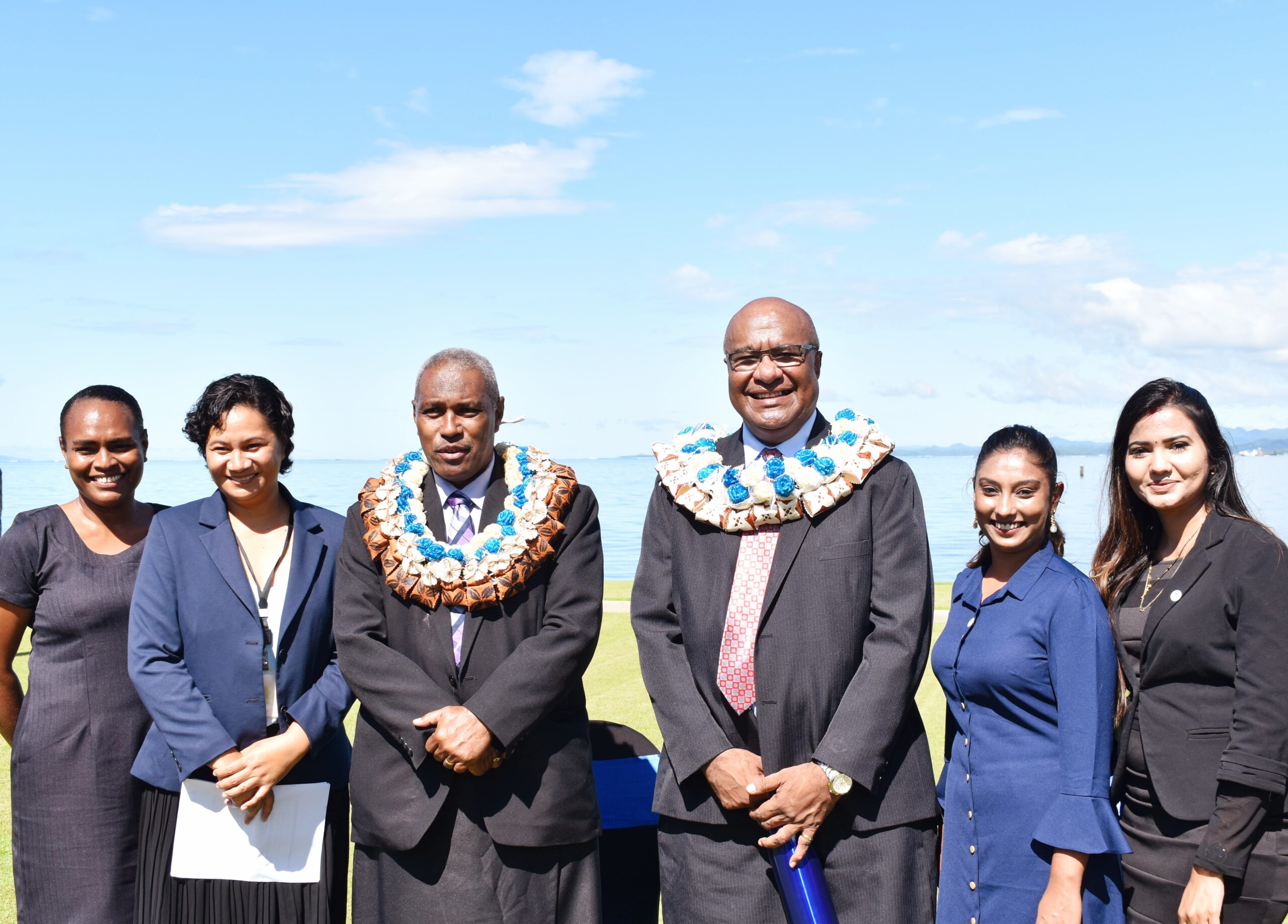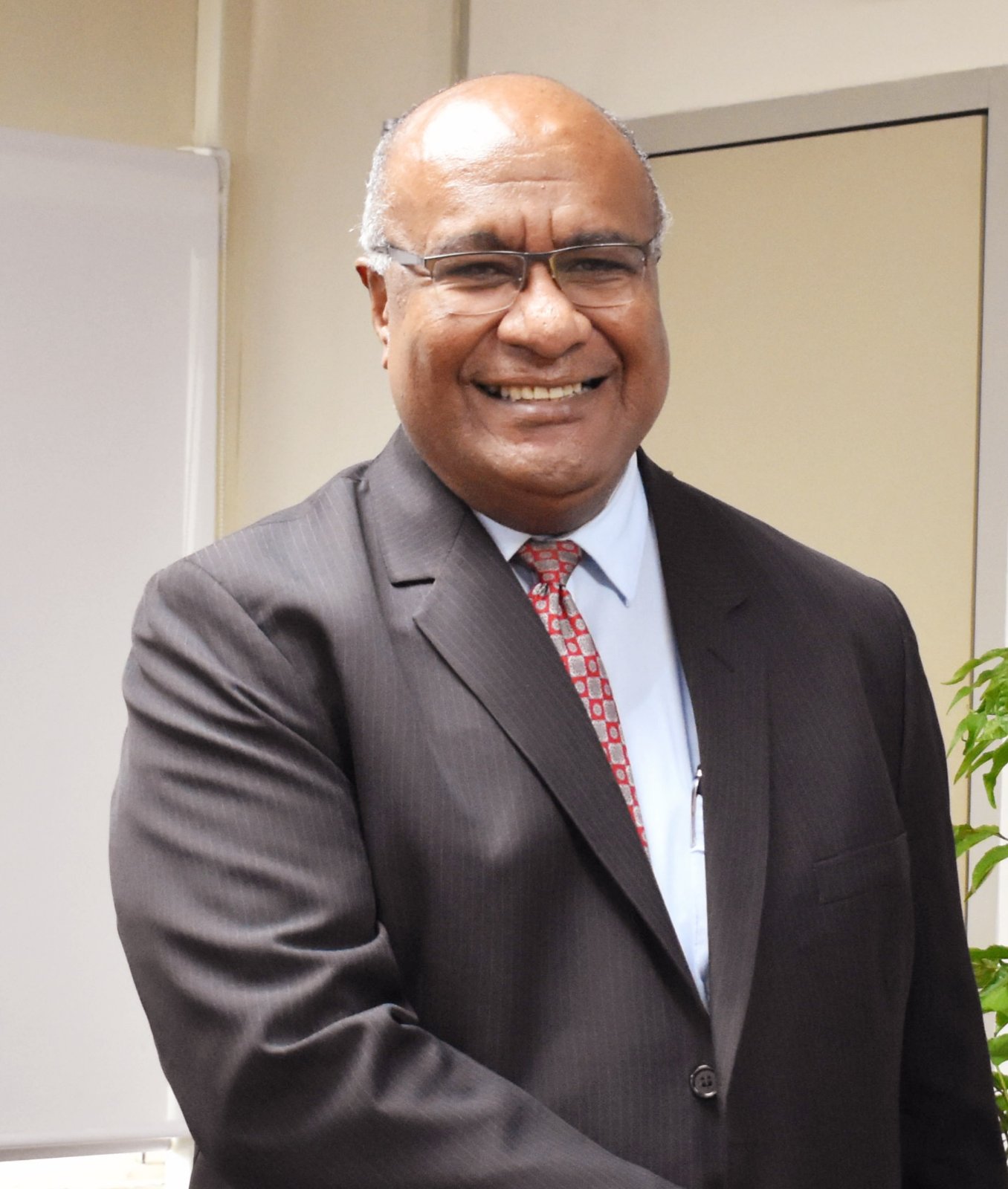Attorney-General and Minister for Justice, Honourable Siromi Turaga,
Acting Assistant Commissioner of Police,
Chief Executive Officer of Consumer Council of Fiji, Seema Shandil
Acting Commissioner of Online Safety Commission, Mary Motofaga,
Directors and Students,
Invited Guests,
Ladies and Gentlemen,
Bula Vinaka and a very good morning to all. I wish everyone a happy “Safer Internet Day” (SID). As fittingly said “the world is a small place” and with the advancement of the Internet, this maxim has become more of a reality today.
Over the years, SID has become a landmark event in the online safety calendar – and this year is extra special as it celebrates the 20th edition of this international day.
As parents, carers, educators and decision makers we need to use this avenue to reach out to young people about creating a better internet.
Ladies and Gentlemen,
Young people are spending a lot of their free time online and can therefore be exposed to online risks. So, it is all-important for us to make them aware of the risks and provide them with the tools they can use as a safeguard – without overshadowing the importance of the internet and the positive experiences and opportunities it offers.
As a young person, you can become an advocate of SID on social media by sharing your experience of the digital environment and your aspirations for a better internet. You can also be the change you want to see in the online world by being kind and respectful to others online, by protecting your online reputation and that of others, and seeking positive opportunities to create, engage and share online.
As a parent or guardian, you also play an important role in empowering and supporting children and young people to use digital technologies responsibly. Talk to your children, educate them to use digital technologies safely and positively or acting as digital role models.
Teachers and educators also have a role to play by equipping their students with digital literacy skills and by developing their critical thinking skills which empower young people to better navigate through the online world. Above all – everyone has a role to play!
The Online Safety Commission (OSC) was established under the Online Safety Act 2018 to promote online safety and to deter harmful electronic communication. The OSC provides Fijians with a space to resolve concerns with respect to online abuse such as online bullying, internet trolling or image based abuse. Approximately 2,800 complaints have been lodged with the OSC, and in 2022, the highest percentage of reports received were:
● 27.16% Defamatory Comments/Posts mostly on Facebook;
● 43.26% Other (Harassment, Hacking of Social Media Accounts, Online Scam, Family Matter and Business related matters); and
● Young people (19 yrs – 25 yrs) 21% of young people have reported to OSC.
The OSC also provides online safety education and awareness raising to Fijian communities, especially parents, schools and law enforcement.
To-date, a total of 1,000 pamphlets and 37,871 booklets on online safety have been distributed in schools and communities in the three different languages – English, Fiji-Hindi and iTaukei. The materials provide guidance to parents on keeping children safe online and online safety for the early years, and information on internet safety, different forms of online bullying and image-based abuse.
Ladies and Gentlemen,
The shift to online space has presented certain challenges and we have seen emerging and evolving threats which are transboundary, for instance when the complainant is in Australia while the account holder/ alleged perpetrator is in Fiji. To help address this, the OSC together with Australia’s eSafety Commissioner, Ofcom in the UK – with support from the Broadcasting Authority of Ireland launched the Global Online Safety Regulators Network last year. The Network is a collaboration between the first movers in online safety regulation and offers a great opportunity for members to share information, discuss and address challenges.
Ladies and Gentlemen,
Today, the Internet has become a necessity in our daily life, suitably making our life easy, fast and simple. The Internet has brought the world together helping us with facts and figures, information and knowledge for personal, social and economic development.
It is hard to look past the technological advancements happening in the world, and one of the major attributes of technological advancement being the Internet. Today, the Internet is easily available to many individuals and is rapidly changing the way we work, travel, educate and entertain.
Ladies and Gentlemen,
Whilst the Internet facility has many advantages and has proved to be a milestone in the technical advancement of our societal way of life – it also provides entertainment for its users, and I’m sure almost everyone present here today has at least a Facebook Account or an Instagram Account, shares TikTok videos and enjoys watching series or movies on the ever-so-popular Netflix.
Ladies and Gentlemen,
I can keep going on about the Internet and how it has changed the way we communicate with each other, the way we learn about the world and the way we conduct business – but the truth is “There are no secrets on the Internet”. And it is the reality for us parents, teachers and the society to accept.
So our point of discussion today focused on “Life on the Internet” is so important and relevant – because almost every family now owns more than one computer, laptop, smartphone, tablet or television.
All of these are supposed to make our lives easier. But although originally created to serve us responsibly, digital devices have revealed their harmful impact on our lives, and when misused, technology can expose us to a number of risks – and our young population are especially vulnerable to these risks.
With the huge number of people using the Internet, it is no surprise that cybercrime is also abundant. Today it is easier than ever before to find someone’s personal information online. The borders of privacy have been blurred significantly through the use of social media, tracking cookies and opaque privacy policies.
With a few clicks, it is not hard to find someone’s Facebook page for example, and then, depending on their settings, to access their pictures, whereabouts, contact information, and so much more. Information obtained in this way can be used by hackers for a wide range of schemes and scams, leaving Internet users vulnerable to phishing, hacking, and virus attacks.
As a parent myself – I have always valued the importance of teaching responsibility and conscious behavior. We must always talk to our children about privacy in cyberspace and the potential risks and dangers. Even if it means going over specific cases to discuss how to face these challenges online – we assume leading roles as parents.
Simple Internet safety rules such as:
1. Keeping Personal Information Professional and Limited
2. Keeping Privacy Settings On
3. Practicing Safe Browsing
4. Choosing Strong Passwords
5. Being Careful with What You Post and Who You Meet Online
can help users avoid getting into trouble both online and offline, and these are words of advice for not only our children but anyone using the Internet.
Last but not the least – find alternatives to technology. We can encourage our children to read books, to get involved in a hobby or a sport, because it’s never too late to bring positive changes to our children’s lives to avoid the negative effects of technology.
We also need to collectively address the dangers of misinformation, mal-information and disinformation. Information circulated must be based on facts and taking into account the correct context.
That is why it is important that we look to trusted sources of information like the Fiji Government social media pages and look for the verified tick on various social media handles.
We also see an increase in reports of online scams. Just over the weekend I came across an article about an online scam which promises large sums of money if one provides their number and other personal information. Please do not be bested by these online scams and refrain from sharing your personal information or one-time passwords for money transfer apps such as M-PAISA or MyCash – your well-earned money can be lost in a matter of seconds.
I look forward to receiving the outcomes of your deliberations today in finding practicable solutions “Together for a Better Internet”.
With these few words I wish you all a happy “Safer Internet Day” once again. Vinaka Vakalevu and Thank you.




